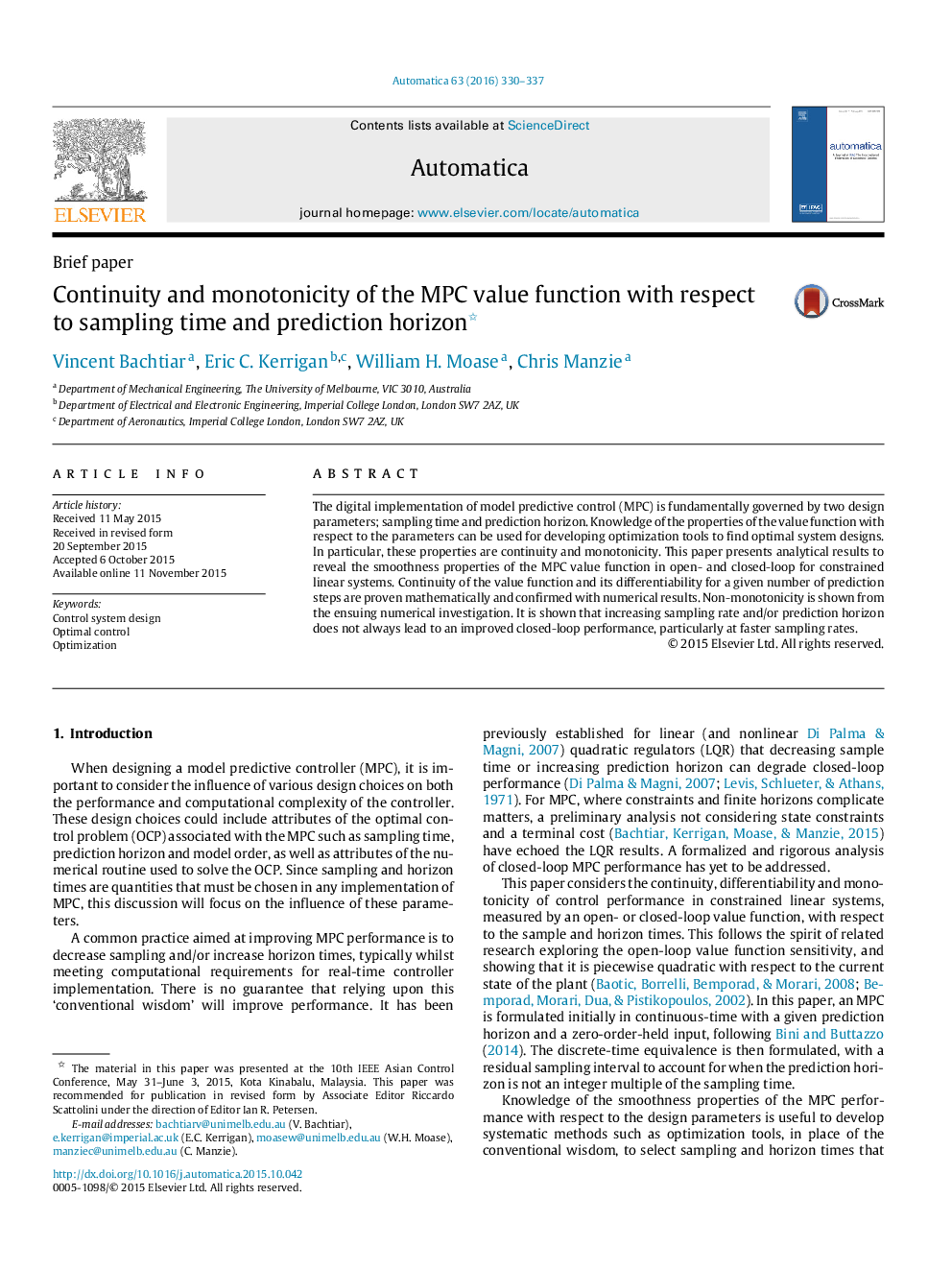| Article ID | Journal | Published Year | Pages | File Type |
|---|---|---|---|---|
| 7109636 | Automatica | 2016 | 8 Pages |
Abstract
The digital implementation of model predictive control (MPC) is fundamentally governed by two design parameters; sampling time and prediction horizon. Knowledge of the properties of the value function with respect to the parameters can be used for developing optimization tools to find optimal system designs. In particular, these properties are continuity and monotonicity. This paper presents analytical results to reveal the smoothness properties of the MPC value function in open- and closed-loop for constrained linear systems. Continuity of the value function and its differentiability for a given number of prediction steps are proven mathematically and confirmed with numerical results. Non-monotonicity is shown from the ensuing numerical investigation. It is shown that increasing sampling rate and/or prediction horizon does not always lead to an improved closed-loop performance, particularly at faster sampling rates.
Related Topics
Physical Sciences and Engineering
Engineering
Control and Systems Engineering
Authors
Vincent Bachtiar, Eric C. Kerrigan, William H. Moase, Chris Manzie,
